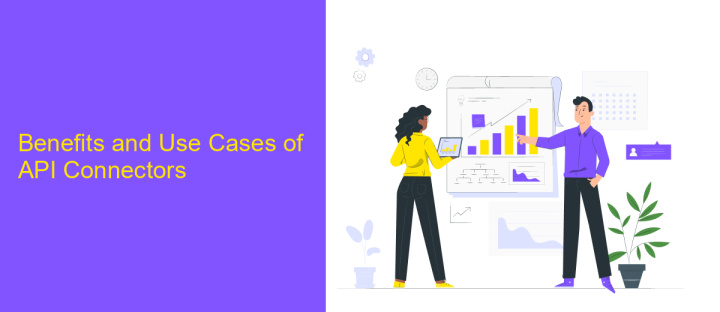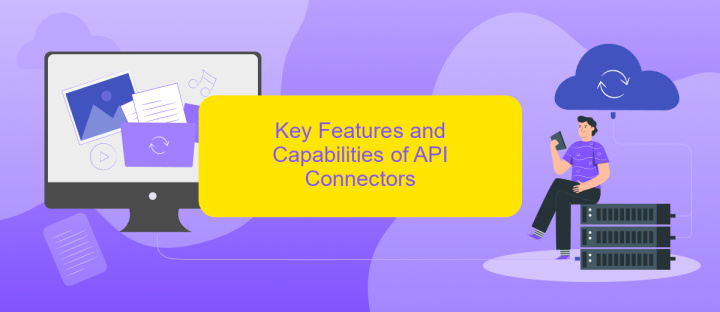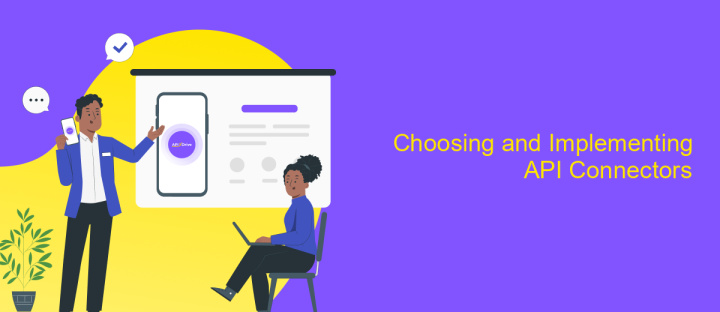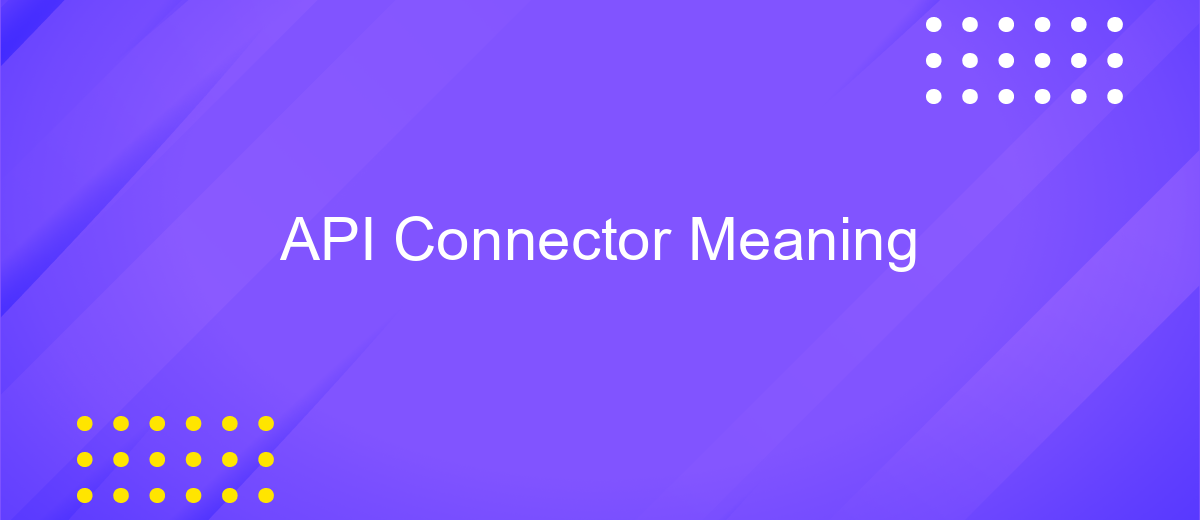API Connector Meaning
An API connector serves as a crucial bridge in the digital ecosystem, enabling seamless communication between different software applications. By facilitating the exchange of data and commands, API connectors empower businesses to integrate diverse systems, enhancing functionality and efficiency. Understanding the role and mechanics of API connectors is essential for developers and organizations aiming to optimize their technological infrastructure and drive innovation in an increasingly interconnected world.
Understanding the Concept of API Connectors
API connectors play a crucial role in the digital ecosystem by facilitating communication between different software applications. They serve as intermediaries that translate and transfer data, enabling seamless integration across diverse platforms. By leveraging API connectors, businesses can enhance their operational efficiency, reduce manual intervention, and foster innovation through interconnected systems.
- Streamlined data exchange between applications
- Enhanced interoperability and flexibility
- Reduced development time and costs
- Improved scalability and adaptability
Understanding the concept of API connectors is essential for businesses aiming to stay competitive in today's fast-paced digital landscape. These connectors not only simplify the integration process but also empower organizations to harness the full potential of their software infrastructure. By adopting API connectors, companies can ensure that their systems are agile, responsive, and capable of meeting evolving business needs.
Benefits and Use Cases of API Connectors

API connectors offer numerous benefits, primarily by enabling seamless integration between different software systems. They eliminate the need for manual data entry, reducing errors and saving time. By automating data transfer, businesses can ensure real-time updates and maintain data consistency across platforms. This connectivity allows organizations to enhance their operational efficiency and focus on core activities rather than getting bogged down by technical challenges. Moreover, API connectors provide scalability, allowing businesses to easily adapt and integrate new applications as they grow.
In terms of use cases, API connectors are invaluable in various industries. For example, e-commerce platforms use them to sync product information, inventory, and orders between their online stores and ERP systems. Marketing teams leverage API connectors to integrate disparate data sources, enabling comprehensive analytics and targeted campaigns. Services like ApiX-Drive simplify these integrations by offering a user-friendly interface to connect multiple applications without requiring extensive coding knowledge. This accessibility empowers businesses of all sizes to harness the power of API connectors, enhancing their technological capabilities and driving growth.
Key Features and Capabilities of API Connectors

API connectors are essential tools that facilitate seamless communication between different software systems. They enable efficient data exchange, enhancing the interoperability and functionality of applications. By serving as intermediaries, API connectors simplify the integration process, allowing developers to focus on creating innovative solutions rather than dealing with complex integrations.
- Data Transformation: API connectors can transform data formats to ensure compatibility between systems.
- Authentication Management: They handle authentication protocols, providing secure access to APIs.
- Error Handling: API connectors offer robust error handling mechanisms to ensure data integrity during exchanges.
- Scalability: They support scalable integrations, accommodating growing data and user demands.
- Real-time Data Sync: API connectors enable real-time data synchronization across platforms.
Incorporating API connectors into your system architecture can significantly streamline operations and enhance overall efficiency. As businesses increasingly rely on diverse software solutions, the role of API connectors becomes crucial in maintaining seamless workflows. By leveraging their key features, organizations can achieve greater agility and responsiveness in today's fast-paced digital landscape.
Choosing and Implementing API Connectors

When selecting an API connector, it's crucial to consider the specific requirements of your project. Begin by identifying the data sources you need to connect and the types of data interactions required. This helps in narrowing down connectors that support the necessary protocols and data formats.
Once you have a list of potential connectors, evaluate them based on compatibility with your existing systems and ease of integration. Consider the scalability of the connector, as your data needs may grow over time. Additionally, assess the security features offered to protect sensitive information during data transfers.
- Check for comprehensive documentation and support resources.
- Ensure the connector supports the required authentication methods.
- Evaluate performance metrics and response times.
- Consider the cost implications, both initial and ongoing.
After selecting an API connector, implement it by following best practices for integration. This includes testing in a controlled environment before deploying to production, monitoring performance, and setting up regular updates and maintenance. Proper implementation ensures seamless data flow and maximizes the efficiency of your operations.


Best Practices for Effective API Connector Management
Effective management of API connectors begins with a comprehensive understanding of your integration needs. Clearly define the objectives and requirements of your API connections to ensure they align with your business goals. Regularly review and update these connections to adapt to changing business environments and technological advancements. Utilize tools like ApiX-Drive to simplify the integration process, allowing for seamless data flow between applications and reducing the complexity of manual configurations.
Security is a critical component of API connector management. Implement robust authentication and authorization measures to protect sensitive data. Regularly monitor API activity to detect and respond to any unauthorized access attempts. Additionally, maintain thorough documentation of your API connections, including their configurations and any changes made over time. This practice not only aids in troubleshooting but also ensures continuity and efficiency in operations. By adhering to these best practices, businesses can optimize their API connector management, enhancing overall productivity and security.
FAQ
What is an API Connector?
How does an API Connector work?
Why would I use an API Connector?
Can API Connectors be used by non-developers?
What are some common use cases for API Connectors?
Apix-Drive will help optimize business processes, save you from a lot of routine tasks and unnecessary costs for automation, attracting additional specialists. Try setting up a free test connection with ApiX-Drive and see for yourself. Now you have to think about where to invest the freed time and money!

